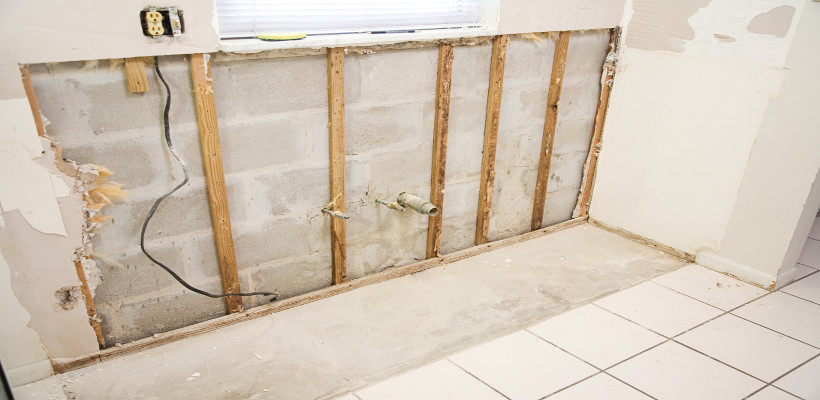
In the aftermath of Hurricane Harvey, many homeowners are beginning the recovery process and facing the burden of repairing property damage. The White House has estimated that over 100,000 homes were destroyed by Hurricane Harvey. Those who suffered property damage by Harvey will begin the recovery process of looking for alternative living arrangements, contacting insurance companies, filing claims, and more importantly, hiring contractors to begin repairs.
Labor and materials are already in short supply following Harvey; however, homeowners should still perform due diligence on potential contractors to avoid faulty work, project abandonment, and additional stress. The following are suggestions to consider when vetting contractors.
- Make sure the contractor has a local, physical business address. Obtaining a contractor's address will enable you to perform a Google maps search to verify that an actual building exists. Red flags include a contractor providing a P.O. Box or Google Street View showing the business address to be a residence.
- Check online reviews. Google the contractor for negative and positive reviews on the company or owner. Remember that a healthy balance of both positive and negative reviews is an important sign that the reviews are legitimate. The Better Business Bureau is a reliable resource for obtaining business information and ratings. The Greater Houston Builders Association is another reliable resource for construction industry business verification.
- Check that the contractor’s business entity is active. The Texas State Comptroller allows website users to search for an entity's franchise tax account status online. This record is public information and reveals the state in which the business was formed, date of registration, registered agent name, office street address, mailing address, and whether the entity is active. A contractor that has allowed his or her entity to go inactive may not have the requisite attention to detail to complete a complex restoration project.
- Ask for and verify that the contractor is licensed and insured. In Texas, only certain types of contractors including electricians, plumbers, and HVAC contractors require a state license. Homebuilders and general contractors are only required to register if a local city or county ordinance applies. Harris County does not require homebuilders and general contractors to obtain a license. Further, recent Texas legislation no longer requires employers in the construction industry to obtain authorization by the state to hire day laborers. For a full list of contractors who are required to be licensed in Texas and to verify whether a contractor’s license is active, refer to the Texas Department of Licensing and Regulation website. The Texas Department of Insurance advises consumers to ask prospective contractors whether they are insured and to request a copy of their certificate of insurance. General liability insurance is generally sufficient to cover liability claims.
- Search the local County Clerk’s records. In addition to verifying a contractor or his business has registered their assumed name with the local county clerk’s office, it is prudent advice is to perform a simple online search of the contractor for any abstracts of judgment against the contractor or mechanic's liens filed by the contractor. Too many liens filed by a contractor may indicate that homeowners are refusing to pay the contractor for unsatisfactory work. A contractor with unreleased abstracts of judgment against them is another red flag for homeowners to consider. You may search Harris County Clerk's records here.
- Do not pay in cash or pay large percentages of the total project up front. Despite how the contractor demands payment, it is completely reasonable to negotiate payment terms. Make payments with either a credit card or check for traceability purposes and arrange a payment plan that allows payments as the job advances.
- Sign a contract. Homeowners have very little protection without a written contract. It is imperative to have a written agreement that clearly includes all terms and expectations such as a start date, estimated completion date, warranties, total price, and scope of work. Any verbal agreements that do not make their way into the contract are likely to fail if presented in court.
- Check for previous and pending lawsuits with the Harris County District Clerk. Searching the district clerk's records for civil lawsuits is free of charge and available to the public after creating a login. A contractor with numerous lawsuits against them or who have filed lawsuits against clients is another red flag for homeowners to examine.
Failing to perform due diligence prior to engaging a contractor can result in a costly mistake. Insurance companies are generally not liable or required to pay additional proceeds related to bad contractors, and most homeowners without insurance cannot afford to hire subsequent contractors. Additionally, many contractors (especially bad ones) are generally uncollectable after obtaining a judgment.
All information provided on Silblawfirm.com (hereinafter "website") is provided for informational purposes only, and is not intended to be used for legal advice. Users of this website should not take any actions or refrain from taking any actions based upon content or information on this website. Users of this site should contact a licensed Texas attorney for a full and complete review of their legal issues.
